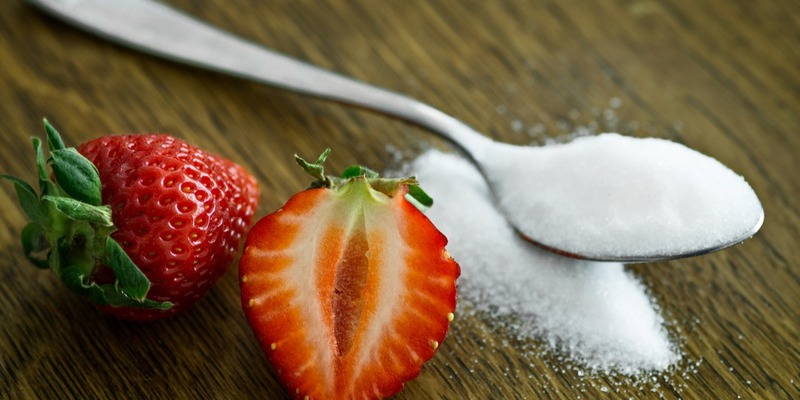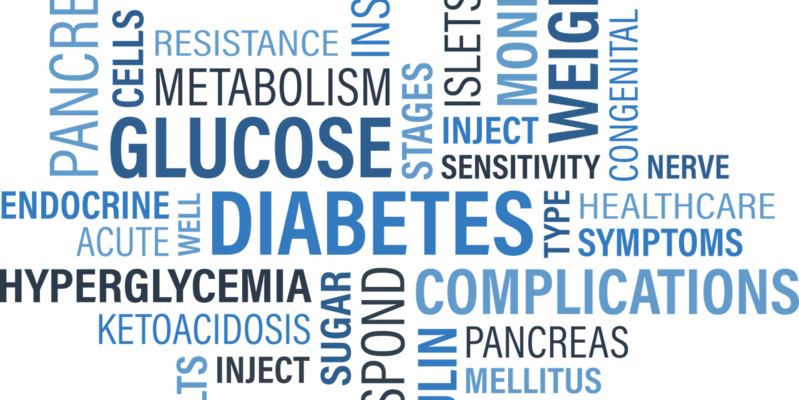Good and bad sugar

Sugar and other carbohydrates can play a role in a healthy, balanced diet, but not all sugars have the same effect. The difference between good and bad sugars lies less in the sugars themselves than in how they are consumed and how quickly they raise your blood sugar levels. In general, "good" sugars are found in healthy whole foods, while "bad" sugars are found in highly refined, processed foods.
Types of sugar
The three types of carbohydrates in your diet - sugars, starches and fiber - are all made up of sugar molecules. Common sugars such as sucrose, fructose, and lactose contain only one or two sugar molecules. Starch and dietary fiber are complex carbohydrates, often made up of hundreds of sugar molecules. During digestion, sugars and starches are processed into glucose, a basic form of sugar that is used to transfer energy through your bloodstream. Sugars and simple starches are digested relatively quickly, causing a rapid rise in blood glucose levels. Sugars that cause a rapid rise can be called "bad" and those that don't can be called "good," although it's less about the sugars themselves and more about how you eat them.
Natural vs. added sugars
Fruits, vegetables, beans, nuts and whole grains all contain simple sugars. When these sugars occur naturally in whole foods, they are packed with an array of vitamins, minerals, proteins, phytochemicals and fiber. The presence of fiber makes a significant difference because it slows the absorption of sugar, which mitigates its effects on blood sugar. The net effect is to reduce the tendency of these foods to raise blood sugar levels, which is by and large a good thing. When sugar is added to food, especially when the healthy fiber and nutrients have already been refined, there is little to slow the transition into the bloodstream. For this reason, some suggest limiting added sugars to 10 percent of total intake. This doesn't necessarily mean that all added sugars are bad. If properly balanced by fiber and other nutrients to slow digestion, and consumed in moderation, they can still be part of your healthy diet.
Health concerns

Bad sugar increases your risk of gaining weight and developing type 2 diabetes and heart disease. A teaspoon of sugar has 16 calories, a teaspoon of honey has 21 calories, and you get 136 calories, including 33 grams or 8 teaspoons of sugar, from a 12-ounce can of generic cola. These empty calories quickly add up to potential weight gain. When sugar enters your bloodstream, your pancreas releases insulin, which allows the sugar to enter cells. The cells sometimes become resistant to insulin. When that happens, the sugar stays in your blood, and that increases your risk of developing type 2 diabetes. Extra sugar also causes triglycerides to rise, which contributes to cardiovascular disease.
Dietary recommendations
The body's main source of energy is glucose, so it is important to eat at least 130 grams of total carbohydrates daily, including 38 grams of fiber for men and 25 grams for women. Try to get all your carbohydrates from whole grains, fruits, vegetables and beans. It is recommended that women eat no more than 6 teaspoons of added sugar per day, while men should limit their added sugar to 9 teaspoons. Remember that some healthy-sounding sweeteners such as maple syrup, fruit nectar, brown sugar, molasses and honey also add sugar.
More information
Always consult your healthcare provider to ensure that the information displayed on this page applies to your personal circumstances.

















